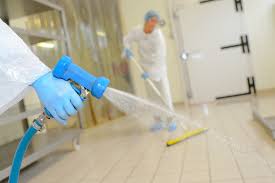
CERTIFICATE IN HEALTH & SANITARY INSPECTOR (1YEAR)
Certificate in Health & Sanitary Inspector (1 Year)
📚 SYLLABUS
🧠 1. Anatomy and Physiology
- Basic structure and function of human body systems
- Importance of health and hygiene in organ function
- Introduction to the digestive, respiratory, excretory, and circulatory systems
- Relevance of anatomy to sanitation and disease transmission
🦠 2. Microbiology and Immunology
- Introduction to microorganisms: bacteria, viruses, fungi, protozoa
- Disease transmission routes and control
- Basics of human immune response
- Disinfection, sterilization, and infection prevention
- Health inspector’s role in infection control
🌍 3. Environmental Health and Sanitation
- Environmental pollution and its health impacts
- Waste management (solid, liquid, biomedical)
- Water supply and sewage disposal
- Housing and sanitation standards
- Vector control methods (mosquitoes, rodents)
📊 4. Epidemiology and Biostatistics
- Definition and uses of epidemiology
- Common communicable diseases and their prevention
- Disease surveillance and reporting
- Basics of biostatistics: data collection, tabulation, graphs
- Field investigation techniques
🍽️ 5. Food Safety and Hygiene
- Foodborne illnesses and contamination sources
- Food handling standards and hygiene
- Food inspection procedures
- Role of sanitary inspectors in hotels, markets, and eateries
- Food safety regulations and reporting
💧 6. Water Quality Management
- Importance of safe drinking water
- Waterborne diseases (cholera, typhoid, hepatitis A)
- Methods of water purification (boiling, filtration, chlorination)
- Water sampling and testing (basic)
- Water storage and distribution systems
🦺 7. Occupational Health and Safety
- Workplace hygiene and safety hazards
- Personal Protective Equipment (PPE)
- Basic first aid and emergency protocols
- Health risks in different occupations (chemical, physical, biological)
- Inspector’s role in factory and labor site inspection
📢 8. Community Health Education and Communication
- Basics of health promotion and education
- Use of posters, leaflets, and public meetings
- Communication skills for public interaction
- Conducting health awareness campaigns
- Educating communities on sanitation, hygiene, and disease prevention

